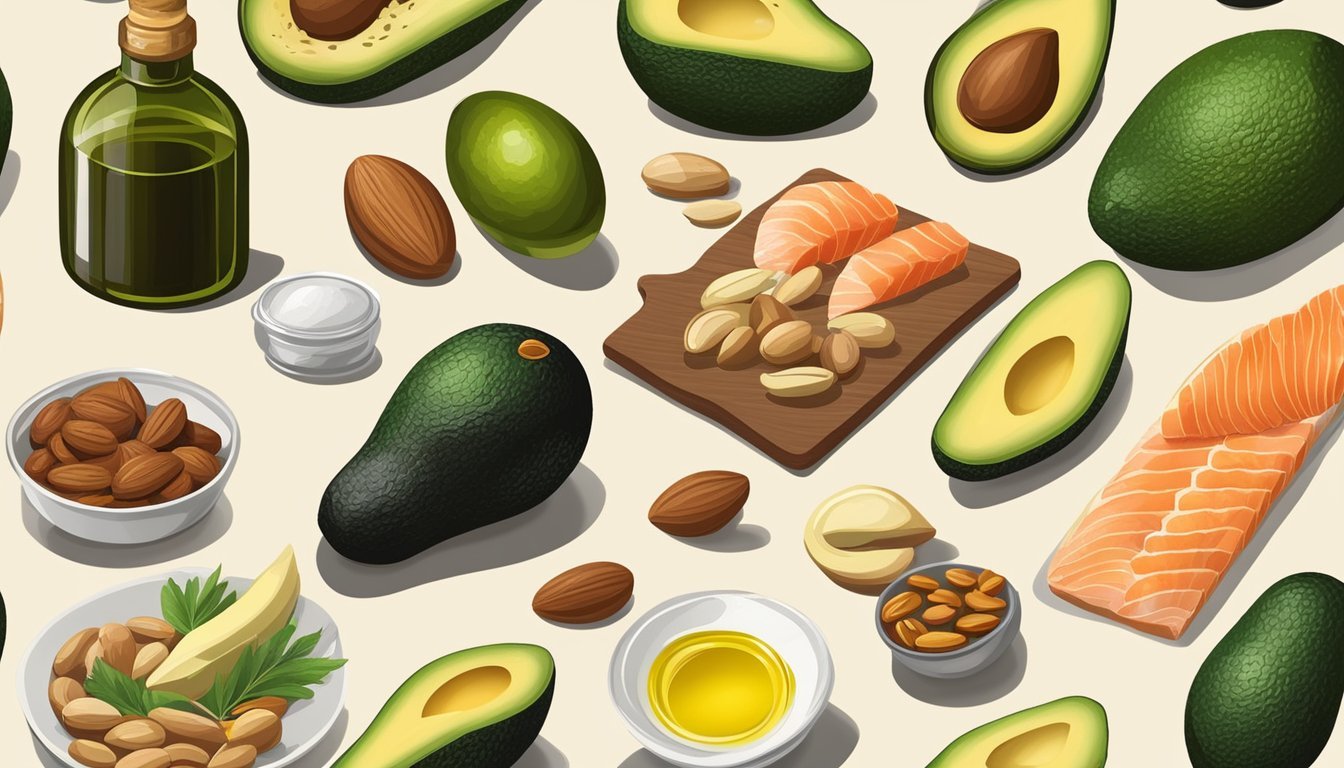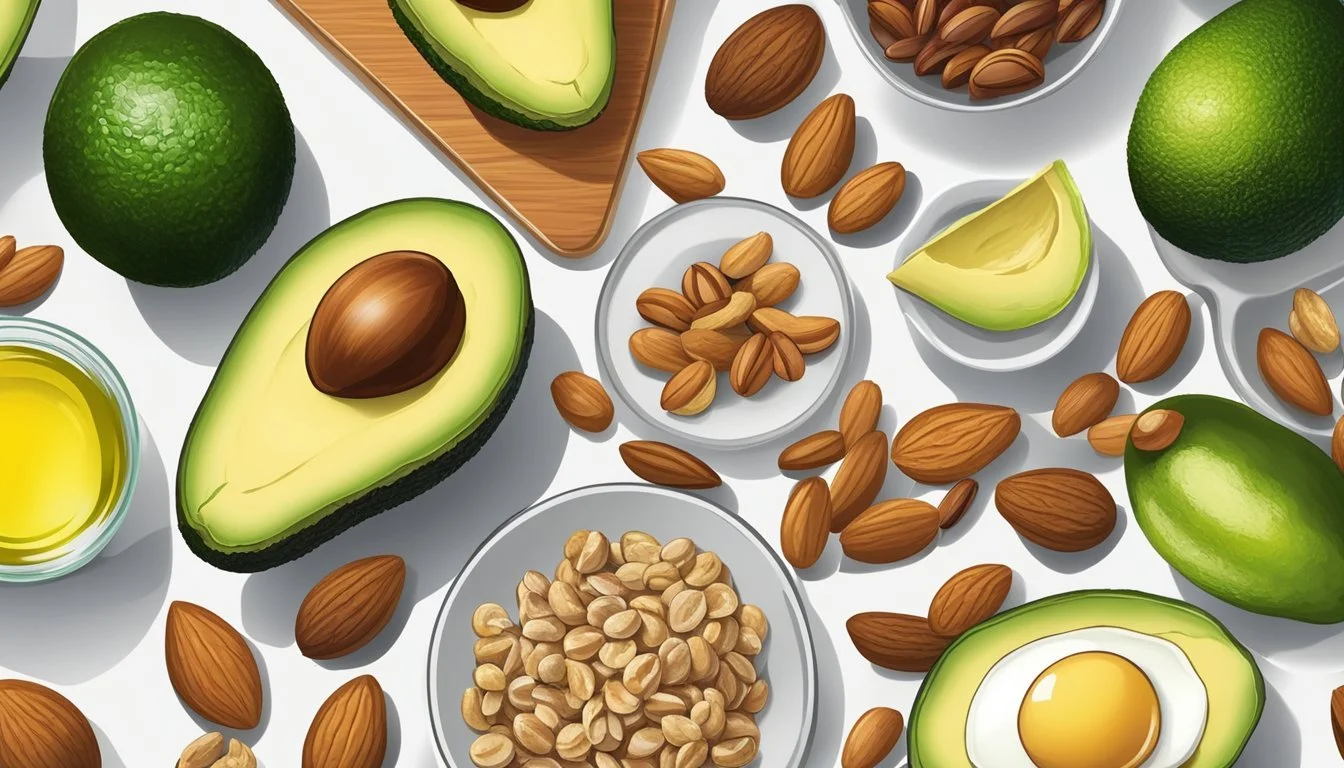Does Eating Fat Make You Fat?
Debunking Nutritional Myths
The relationship between dietary fat and body weight has been a topic of considerable debate and research. Contrary to popular belief, consuming dietary fat does not necessarily lead to weight gain. Fats are an essential part of a balanced diet, providing energy, aiding in the absorption of vitamins, and maintaining cell health. Not all fats have the same effect on the body. Trans fats and saturated fats have been associated with health concerns, including heart disease and increased obesity risk, whereas monounsaturated and polyunsaturated fats are known for their beneficial effects on heart health.
Understanding the role of energy balance is crucial when examining the impact of dietary fat on body weight. Weight gain occurs when calorie intake exceeds calorie expenditure, regardless of whether those calories come from fats, carbohydrates, or proteins. Therefore, a healthy diet is not about eliminating fat but rather about choosing the right types of fats and moderating total caloric intake.
A healthy diet that includes fats should focus on moderate consumption and favor sources of good fats such as avocados, nuts, seeds, and fish. These types of fats support metabolic health and can even help maintain a healthy weight when consumed as part of controlled and balanced dietary habits. Portion control and overall caloric balance remain key factors in preventing obesity and promoting overall health.
The Basics of Dietary Fat
In exploring the role of dietary fat, it is important to understand the different types of fat and how they contribute to the body's energy balance.
Types and Functions of Fat
Dietary fat is a macronutrient that is essential for various bodily functions, including nutrient absorption and energy provision. Fats can be classified primarily into two categories:
Saturated fats: These fats are typically solid at room temperature and are found in animal products and some tropical oils. Consuming high levels of saturated fats can be linked to health risks such as heart disease.
Unsaturated fats: These are usually liquid at room temperature and are found in plant-based oils, nuts, and fish. Unsaturated fats are further subdivided into:
Monounsaturated fats (MUFAs): Beneficial for heart health when used in place of saturated fats.
Polyunsaturated fats (PUFAs): Includes essential fatty acids like omega-3 and omega-6, which the body cannot produce on its own.
Understanding Calories and Energy Balance
Calories are units of energy that measure the amount of energy a food provides. One gram of fat contains approximately 9 calories, which is more than double the number of calories in a gram of protein or carbohydrate. Here's how dietary fat interacts with the body's energy balance:
Energy Balance: The balance of calories consumed in foods and beverages versus calories expended through physical activity determines weight maintenance or change. Eating more calories than the body requires leads to energy storage in the form of body fat, contributing to weight gain.
Excessive intake of calories, regardless of whether they come from fat, carbohydrates, or protein, can lead to an increase in body fat. However, the quality and type of fat consumed also play a crucial role in health outcomes.
The Role of Fats in Weight Management
Fats play a complex role in weight management, with different types contributing to both weight gain and weight loss. Understanding the impact of fat consumption on body weight is essential for making informed dietary choices.
Eating Fat and Weight Gain
Caloric Intake: Each gram of fat contains 9 calories, more than double the calories per gram of carbohydrates or proteins. High fat consumption can lead to an increase in caloric intake, which, if not matched with energy expenditure, can result in weight gain and an increase in body fat. Studies have shown that a diet high in trans and saturated fats is associated with modest weight gain over time. These fats are found in processed and fried foods (What wine goes well with fried foods?), and can contribute not only to obesity but also to other health risks like diabetes and heart disease.
Healthy Fats for Weight Loss
Healthy Fats: In contrast, unsaturated fats, such as those found in nuts, seeds, avocado, and fatty fish, play a key role in a balanced diet. They are vital for nutrient absorption and can even aid in weight loss by promoting satiety, thus potentially reducing overall caloric intake. Importantly, healthy fats should replace unhealthy ones, not add to the existing fat intake. A focus on plant-based sources and minimally processed foods can help individuals leverage healthy fats for weight management.
Nutritional Aspects of Fats
Fats play a complex role in nutrition, serving as essential energy sources while also influencing overall health. Understanding their place in a balanced diet and their role in nutrient absorption is crucial.
Fats in a Balanced Diet
A balanced diet includes a mix of polyunsaturated, monounsaturated, and saturated fats, while keeping trans fats to a minimum. Healthy fats like those found in nuts and seeds contribute positively to the balance of a diet. Polyunsaturated and monounsaturated fats, which are prevalent in items such as fatty fish, play a key role in cardiovascular health. They help manage and maintain the balance required for optimal bodily functions.
Vitamins and Essential Fatty Acids
Fats are vital for the absorption of fat-soluble vitamins such as Vitamin A, D, E, and K. Without sufficient dietary fats, one's body cannot absorb these vitamins effectively. Additionally, certain fatty acids like omega-3 fatty acids, which are classified under polyunsaturated fats, are considered essential because the body cannot synthesize them. They must be obtained through diet, primarily from fish, flaxseeds, and walnuts, and are crucial for brain health and reducing inflammatory responses.
Health Implications of Different Fats
The consumption of different types of fats can have varying impacts on health. Some fats contribute to the risk of heart disease and high cholesterol, while others may actually protect against these conditions.
Saturated and Trans Fats: Risks
Saturated fats are typically found in animal products and certain oils. They can raise cholesterol levels in the blood, specifically low-density lipoprotein (LDL) cholesterol, known as the 'bad' cholesterol. High levels of LDL cholesterol in the blood increase the risk of heart disease by promoting the buildup of fatty deposits in the arteries.
Sources of saturated fats include:
Red meat
Butter
Coconut oil
Trans fats, on the other hand, are industrially produced and present in many processed foods. They not only increase LDL cholesterol but also lower high-density lipoprotein (HDL) cholesterol or the 'good' cholesterol. The elimination or reduction of trans fats from the diet is critical for cardiovascular health.
Common sources of trans fats:
Margarine
Packaged snacks
Fried foods
Unsaturated Fats and Heart Health
Unsaturated fats are considered beneficial fats that can help reduce the risk of heart disease and lower cholesterol levels. These fats are liquid at room temperature and can be classified as monounsaturated or polyunsaturated fats.
Monounsaturated fats:
Sources include:
Olive oil
Avocado
Nuts
Polyunsaturated fats include omega-3 and omega-6 fatty acids, which are essential fats that the body cannot produce on its own.
Sources of omega-3 fatty acids:
Fatty fish like salmon
Flaxseeds
Walnuts
Consuming unsaturated fats in place of saturated and trans fats can improve blood lipid profiles, help maintain the integrity of blood vessels, and reduce the risk of artery-clogging plaque formation.
The Impact of Fats on Chronic Diseases
Fats in the diet can have a significant impact on the development and progression of chronic diseases. Specific types of fats have been linked to an increased risk of conditions like diabetes and certain cancers, while others may offer protective benefits.
Dietary Fat and Diabetes
The relationship between dietary fat and diabetes, particularly type 2 diabetes, is complex. The type of fat consumed can influence the body's insulin sensitivity. Polyunsaturated and monounsaturated fats, which are found in foods like nuts, seeds, and liquid vegetable oils, may improve insulin sensitivity and thus, aid in the prevention of type 2 diabetes.
Conversely, diets high in trans fats and saturated fats can increase the risk. Trans fats, in particular, are associated with an increased risk of developing insulin resistance, a precursor to diabetes. It's crucial for individuals at risk of diabetes to monitor their intake of these fats to help protect their health.
Fat Consumption and Cancers
The consumption of certain dietary fats has been linked to an increased risk of various cancers. Diets high in fat, especially those rich in saturated and trans fats, have been associated with an increased risk of certain types of cancer due to their potential role in promoting obesity and inflammation.
Conversely, fats such as omega-3 fatty acids, which are found in fish, have been associated with a reduced risk of certain cancers, possibly due to their anti-inflammatory properties. Maintaining a balance of healthy fats can be an important part of a cancer prevention diet.
By understanding the impact of dietary fats on these chronic diseases, individuals can make informed choices that contribute to their long-term health and well-being.
Sources of Dietary Fat
Dietary fats are a macronutrient essential to the human body, providing energy and supporting cell growth among other functions. They are classified mainly by their chemical structure into saturated and unsaturated fats. The food sources of these fats vary widely and can be divided into animal-based, plant-based, and processed fats.
Animal-Based Fats
Animal-based fats predominantly contain saturated fats. These are typically solid at room temperature and can be found in various animal products. Meat and dairy are primary sources:
Meat: Fatty cuts of beef, pork, and lamb contain higher amounts of saturated fat. Poultry with skin similarly has more fat than skinless options.
Dairy: Products like butter, cheese, and cream are rich in saturated fats. Whole milk also provides a considerable amount of these fats compared to its skimmed counterparts.
Plant-Based Fats
Plant-based fats primarily consist of unsaturated fats, which are generally liquid at room temperature and are considered heart-healthier options. These fats are found in:
Nuts and Seeds: Almonds, walnuts, flaxseeds, and chia seeds are high in unsaturated fats like omega-3 and omega-6 fatty acids.
Vegetable Oils and Olive Oil: Oils such as olive, canola, and sunflower are sources of monounsaturated fats, while others like corn oil and safflower oil contain polyunsaturated fats.
Avocado: Besides being rich in monounsaturated fats, avocados offer a unique profile of vitamins and minerals.
Processed Fats and Oils
Processed fats and oils can include both animal and plant sources, often altered to enhance shelf life or for culinary purposes.
Hydrogenated Oils: These are plant oils that have been chemically processed to be more solid, increasing their saturated fat content. They are commonly used to create margarine and shortening.
Trans Fats: Often found in processed foods, trans fats are created through hydrogenation. They are associated with negative health effects and are largely being phased out of food production.
Debunking Myths About Dietary Fat
In the quest for a healthier lifestyle, understanding the role of dietary fat is crucial. Common misconceptions can lead to poor dietary choices, so it's essential to recognize the truths and falsehoods about fat consumption.
Fat Makes You Fat: Fact or Fiction?
The adage "fat makes you fat" oversimplifies a complex topic. Calories are the primary factor for weight gain, not just fat alone. If one consumes more calories than they burn, regardless of the source—fat, carbohydrates, or protein—weight gain can occur. It's the imbalance between calories in and calories out that leads to fat storage, not dietary fat by itself. Moreover, dietary fat is vital for many bodily functions, including nutrient absorption and hormone production.
The Truth About Low-Fat Diets
Low-fat diets gained popularity under the assumption that reducing fat intake would naturally lead to weight loss. However, this approach misses the mark. It's not the absence of fat, but the quality and total caloric content of the diet that is key. Low-fat diets often compensate for the lack of taste by adding sugars or refined carbohydrates, which may not aid in weight loss as intended. In fact, dietary fats, especially monounsaturated and polyunsaturated fats, are beneficial for health when consumed in moderation. They can help maintain a feeling of fullness and offer essential fatty acids that the body cannot produce on its own.
Dietary Fat in Popular Diets
In the landscape of popular diets, the role and type of dietary fats consumed vary significantly. Two diets stand out for their specific approaches to fat intake: the ketogenic diet, which is high in fats, and the Mediterranean diet, known for its focus on healthy fats.
Ketogenic Diet and Fat Intake
The ketogenic diet is a high-fat, low-carbohydrate diet that drastically alters the body's metabolism. Participants in this diet consume substantial amounts of fat, accounting for as much as 70-80% of daily caloric intake. Dietary fats in a ketogenic regimen are pivotal in inducing a state of ketosis, where the body utilizes fat as a primary energy source instead of glucose. The emphasis is often on sources like:
Avocados
Coconut oil
Butter and cream
Cheese
Nuts and seeds
It's essential for individuals to monitor their intake of saturated and trans fats, which should be minimized, and instead, focus on unsaturated fats including omega-3 fatty acids commonly found in fish.
Mediterranean Diet: A Model for Healthy Fat Consumption
Conversely, the Mediterranean diet exemplifies moderate and healthful fat consumption, primarily from unsaturated fats. People following this diet typically consume:
Olive oil as the main fat source
Nuts and seeds
Fatty fish such as salmon and mackerel
Moderate amounts of dairy
The Mediterranean diet is associated with a lower risk of cardiovascular diseases and places emphasis on healthy fats which form a significant part of its total fat intake. Unlike the ketogenic diet, it includes a higher ratio of monounsaturated to saturated fats, aligning with recommendations for heart health.
Practical Tips for Managing Fat Consumption
When it comes to managing fat consumption, it's crucial to focus on balance and quality. By understanding how to balance macronutrients and choose healthier fats, individuals can integrate fats into their diet in a way that supports health.
Balancing Macronutrients in Your Diet
Balancing the three macronutrients—fats, carbohydrates, and proteins—is essential for a healthy diet. Fat intake should not be isolated but considered as part of the total caloric intake. Here's a concise way to approach macronutrient balance:
Carbohydrates: Should consist primarily of whole grains, fruits, and vegetables.
Proteins: Prioritize lean sources like poultry, fish, legumes, and plant-based options.
Fats: Include a moderate amount, with a focus on unsaturated fats over saturated fats.
For most people, a macronutrient distribution that includes 20-35% of calories from fats, with an emphasis on unsaturated fats, fits within dietary guidelines.
Choosing Healthier Fats in Everyday Meals
Selecting the right types of fats can be beneficial for heart health and overall well-being. Here's how to choose healthier fats:
Cooking oils: Opt for oils rich in unsaturated fats like olive oil.
Nuts and seeds: Incorporate a variety of nuts, such as almonds and walnuts, for their healthy fat content.
Avocados: These are a great source of monounsaturated fats and can be added to salads, sandwiches, and more.
Fish: Fatty fish like salmon provide omega-3 fatty acids. Aim to include fish in your meals twice a week.
Remember, portion control is key as all fats are calorie-dense. For example, a serving size of nuts is typically a small handful or one ounce. Using a tablespoon to measure servings of olive oil can help keep quantities in check.






